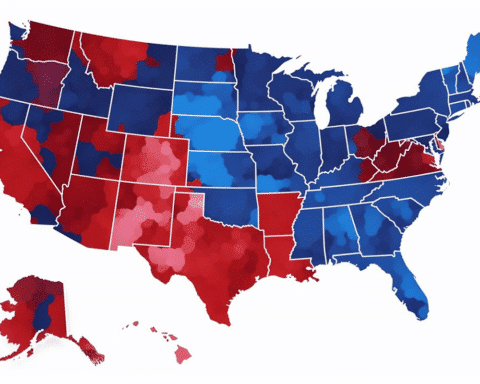New Zealand’s economy has taken a hit as it officially enters a recession, grappling with a 0.1% contraction in the first quarter of the year, following a 0.7% decline in the previous quarter. The downturn comes amidst the Reserve Bank of New Zealand’s (RBNZ) aggressive interest rate hikes since October 2021, which have surpassed those of the US Federal Reserve. As the cost of borrowing rises, individuals and businesses are feeling the strain, exacerbating the challenges posed by inflation and recent disruptive events.
Interest Rate Hikes Take Their Toll
New Zealand’s central bank, the RBNZ, has been at the forefront of raising interest rates in response to the post-pandemic economic recovery. However, the 5.5% main interest rate increase in the country has started to impact everyday New Zealanders. The rising costs of mortgage repayments and loans are adding financial pressure to an already burdened population, who are grappling with soaring prices and increased living costs.
Voices from New Zealand
David Jordan, an Auckland-based web engineer, shared his perspective on the current economic climate, stating, “Interest rates are crippling. I have seen many job losses in my industry as start-ups try to save money, though consultancies working with big global firms seem to be faring better.” Jordan’s sentiments highlight the divergent experiences across different sectors of the economy, with larger firms showing more resilience compared to smaller businesses.
Global Efforts to Tackle Inflation
Central banks worldwide have been raising interest rates in an attempt to curb inflation as economies gradually reopen following COVID-19 lockdowns. The rising cost of goods, including fuel and food, fueled by the ongoing Ukraine conflict, has put pressure on policymakers to take action. New Zealand’s decision to lead the charge in raising interest rates was in line with the global trend but has brought its own set of challenges, particularly in the face of adverse weather events and strikes.
Impacts of Adverse Weather and Strikes
The first quarter of 2023 was marred by two cyclones, Hale and Gabrielle, and teachers’ strikes in New Zealand. The consequential disruptions had a notable impact on various sectors of the economy. Jason Attewell, economic and environmental insights general manager at Statistics New Zealand, stated, “The adverse weather events caused by the cyclones contributed to falls in horticulture and transport support services, as well as disrupted education services.” These setbacks, coupled with the effects of rising interest rates, further compounded the economic challenges faced by the nation.
Prospects for the Future
While the RBNZ had previously signaled its intention to raise rates further, the recent contraction in the economy suggests a shift in approach. The disappointing figures are likely to temper expectations of future interest rate hikes in the foreseeable future. Market analysts and experts anticipate that the central bank will adopt a more cautious stance moving forward, prioritizing stabilization and recovery efforts.
New Zealand’s Road to Economic Recovery
The recent recession in New Zealand’s economy, coupled with the impact of aggressive interest rate hikes, paints a challenging picture for the nation. As individuals and businesses face the strain of rising borrowing costs, the economic pressure intensifies.
While global efforts to tackle inflation have led to interest rate increases worldwide, New Zealand’s position as an early adopter has exposed it to unique challenges. Adverse weather events and strikes further compounded the economic difficulties faced by the country.
Looking ahead, the disappointing figures and economic contraction are expected to shift the RBNZ’s approach, likely leading to a more cautious stance on future rate hikes. As New Zealand aims to stabilize its economy, finding a delicate balance between managing inflationary pressures and supporting affected sectors will be crucial for its path to recovery.




